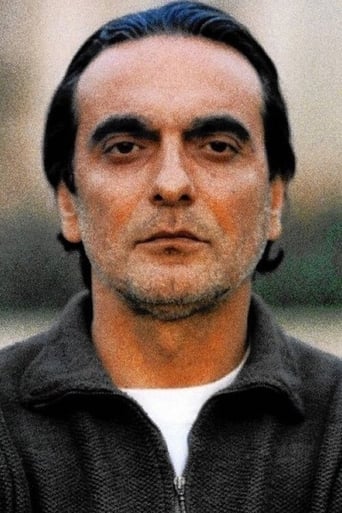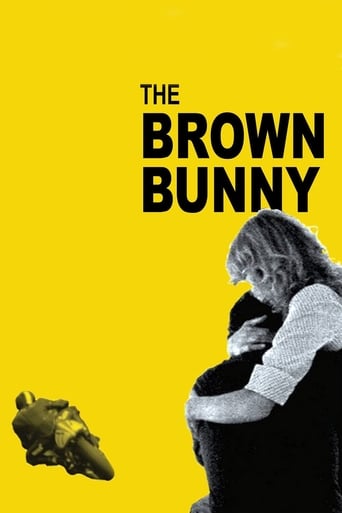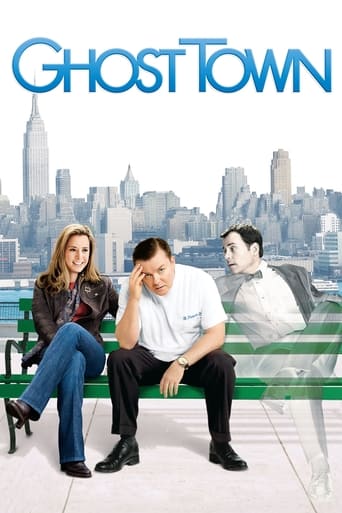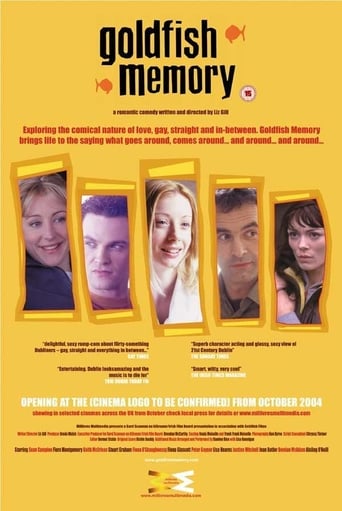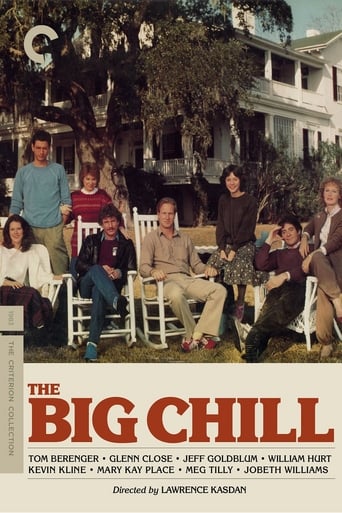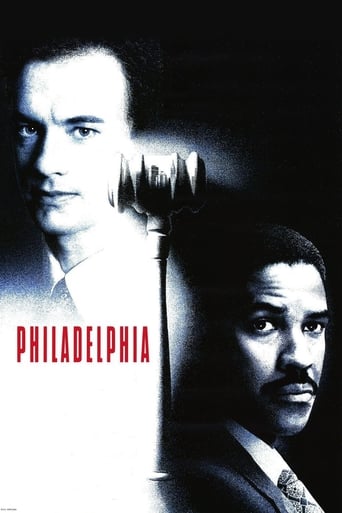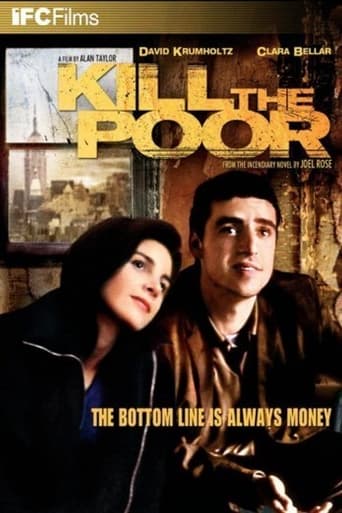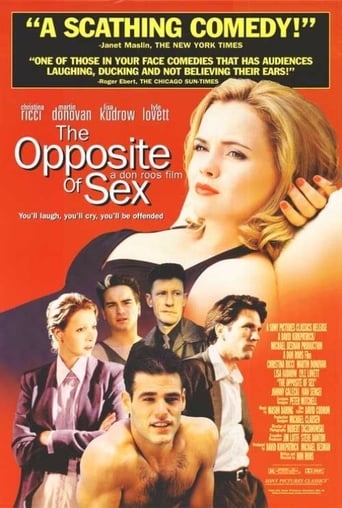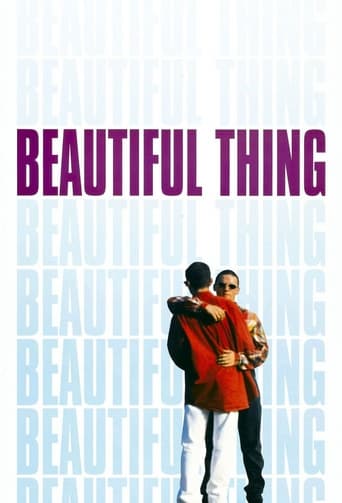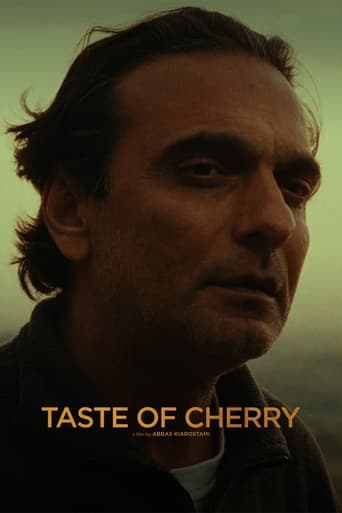
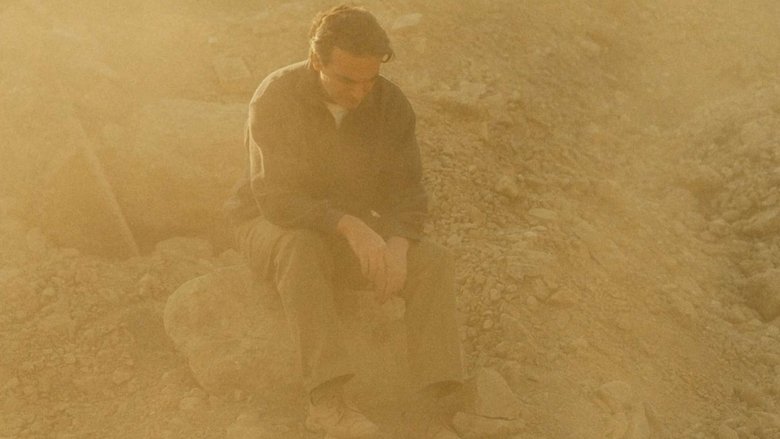
Taste of Cherry (1997)
A middle-aged Tehranian man, Mr. Badii is intent on killing himself and seeks someone to bury him after his demise. Driving around the city, the seemingly well-to-do Badii meets with numerous people, including a Muslim student, asking them to take on the job, but initially he has little luck. Eventually, Badii finds a man who is up for the task because he needs the money, but his new associate soon tries to talk him out of committing suicide.
Watch Trailer
Cast


Similar titles
Reviews
There is a certain type of film that is so interesting, and different that it polarizes it's audience in astounding ways. No example better suits this than when Abbas Kiarostami's "Taste of Cherry" premiered at the 1997 Cannes Film Festival. The audience reacted colorfully with cheers and jeers. It was awarded the prestigious Palme D'Or for its excellence. The critics hailed it as a work of genius, except for one. The great Roger Ebert. In fact, he hated it. He called it a "lifeless drone" and "excruciatingly boring". He even placed it in his "Most Hated Films" list. How could a critic of such fascinating intellect and unmitigated love for all of cinema have such harsh words for Taste of Cherry? What was not to understand? Or like? Sitting down to watch this picture for the first time, I felt uncertain, but entirely interested. I've gone through an entire semester of watching so many classic pictures of the world. Some of them have become one of my all-time favorites, and others, you couldn't pay me to watch again. Kiarostami didn't impress me too much with "Where is the Friend's Home?" In fact, if I were to call a film a "lifeless drone", that would be the one. Actually, it would be more like "The Color of Pomegranates", sorry, I'm not quite over that one. Regardless, Taste of Cherry, I found to be a surprisingly sweet end to the semester. It's far from a perfect film, but it's far from anything I would say is boring or bad. If anything, it left a very good impression of Kiarostami for me. The entire film has me wondering about our main character, Mr. Baadi. Who is he? Why is he driving around the Tehran countryside? Why is he constantly looking for hitchhikers to pick up? More importantly, and much to the very point on everyone's minds, why does he want to commit suicide so bad? Every time he picks up a new stranger, he tries to reel them into being his accomplice for his suicide attempt. He just wants someone to bury with. Nobody really understands why. It's not like he's a depressed man of any sort, especially due to how calm he seems as he's talking to the people he is driving. Kiarostami brilliantly tells us nothing about Mr. Baadi's character, except for the fact that he is an awfully lonely man, who just wants to die. It makes the majority of the film's existence seem gloomy and introspectively miserable. Mr. Baadi's truck, almost in itself, seems to symbolize his isolation from the world, the darkness that lurks inside his head, and the shell to which he is about to hide himself in as he lays in his grave. Its almost as if Mr. Baadi is looking to be isolated from the rest of the world forever, but looks for one last companion to join him. It is unclear if he likes company or not, but what is clear is that Baadi seriously has a death wish, and not in the Charles Bronson kind of way. The only section of the film that left me cold was the end. A few minutes before we get a fantastic final scene in which Baadi buries himself in the spot in which he told his passengers to meet him. It's in the early hours in the morning. Kiarostami holds onto a shot of Baadi staring out into the distance, which is framed absolutely beautifully. Then, as Baadi reaches down and lies in the hole, he simply waits, and stares up at the moon. This scene is so peaceful, but so incredibly eerie and sad at the same time. The sense of death was imminent, even though his accomplice never showed up. This would have been the perfect spot to end the picture. But the picture doesn't end. Instead, we are treated to some B-Roll footage of the film. Why did Kiarostami felt the need to put this in? Some have argued that this helps blur the line between reality and fiction for the audience. Some have argued that it lightened up the ending of the film in order to assure the audience that everything was OK in the end, but did a movie like this really warrant such an ending? If anything at all, it just seems really overly self-serving of Kiarostami. Like he just wanted to place himself in the picture somewhere, ala Alfred Hitchcock. I hear that most of what he believes in himself is what inspires him to make movies, so I'm guessing that Kiarostami is one very narcissistic director. The B-Roll footage just didn't work at all with me. It didn't make me feel happier coming out of the film, because I was happy with where it left off to begin with. OK, fine, I like a bit of grimness with my movies. Don't we all, though? Taste of Cherry is a sublime piece of art house cinema, and unquestionably, the masterpiece of Kiarostami. It's a striking soliloquy about the preciousness of life, and the unrequited friendship of others in our darkest hours. It's not a bright film of any sort, but in examining the dark context of suicide, it goes about it with class and fascination.
3 drastically different stories unfold from the same scenario, kind of like Rashomon. It takes until towards the conclusion of 1st "story" for us to know what Mr. Badii's intent is, and when we find out he wants help from somebody to bury him the dialogue becomes very deep and thoughtful.There are plenty of good lines in this film, such as "you cannot use the spade, but you can use the gun," questioning the difference between two methods of going about killing somebody. There is definitely more of a cowardice behind the use of a gun, and the soldier embodies this by fleeing the car before answering if he will help Mr. Badii.The film has a brilliant structure, making it seem like three stages of life. We have the young soldier, representing that we fear death in youth. Then we have a slightly older man who has a religious background who explains the problem with suicide. This represents an awareness of death, but the man trying to convince Badii that suicide is a sin shows not necessarily coming to terms with death just yet.The final conversation is the longest, and it revolves around an older taxidermist. Not only is he closer to death than Badii, he is familiar with death since he is a taxidermist. He is also extremely wise and has a lot to say about why Badii should reconsider, but he also accepts the job, showing an acceptance of death. It is also important to note that the film takes place over one long day, and with night coming at the end of this day it represents the ending of life in a sense.This is a really brilliant movie with such a strange ending that I still do not quite understand. I would have liked if the film had ended when they day ended rather than the ending that reflects on filmmaking. In my opinion, this is a near-perfect film.
Man drives around trying to find someone to bury him after he commits suicide. The film crew shows itself at the end. The picture goes on to win the Palme d'Or. Critics and film enthusiasts proclaim it's a work of genius. I hate it. I really hate this boring, indulgent film. But I accept I am in the minority and have nothing to add in my criticism except disdain for it. It didn't move me, when I know it moved others. It means nothing to me except being the pinnacle of tedium, when it means much more to many others. I can't think of a film I dislike more than The Taste of Cherry, but even after 15 years, I still haven't forgotten it.
I admire the style and goal of this film. It's not an easy job to make a good movie with such a small budget and with such a tight focus. There are no gimmicks or flashy tricks here. It really is just a man driving through town and its surroundings, talking to people and trying to fulfill his final mission. That's ambitious. And at some points it really works. The early scenes especially, where we're only beginning to know this strange, slightly uncomfortable, but also very charismatic man, are really good and I enjoyed the mystery.Unfortunately the narrative isn't that great. The movie has a tendency to jump from one important scene to another with no bridges, no explanations. I'm sure there are people who would say that the movie doesn't need those bridges. I disagree. A true master of his craft may be able to tell a story without them, but for most of us, those bridges and story-telling techniques are there for a reason. They are needed to make the story flow more smoothly. To leave them out altogether makes the movie seem jumpy and jarring, as if there wasn't enough time to film certain scenes. On the other hand, the ending scene feels completely unnecessary and stylistically broken.Still, the movie has its upsides. The dialogue, for the most parts, is really good and captivating, as are the actors. The movie has its own unique style, the lack of music fits the mood and I actually enjoyed the story, unevenly told as it might have been. So yeah, just slightly below average, but worth a watch, in my opinion.


